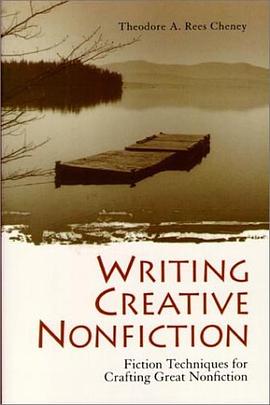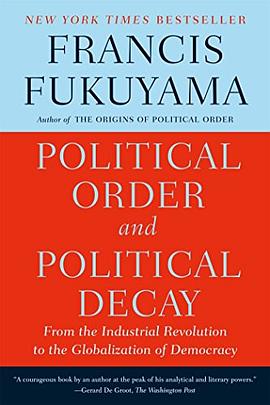

具体描述
From the #1 bestselling author of Fiasco and The Gamble , an epic history of the decline of American military leadership from World War II to Iraq
History has been kind to the American generals of World War II—Marshall, Eisenhower, Patton, and Bradley—and less kind to the generals of the wars that followed. In The Generals , Thomas E. Ricks sets out to explain why that is. In part it is the story of a widening gulf between performance and accountability. During the Second World War, scores of American generals were relieved of command simply for not being good enough. Today, as one American colonel said bitterly during the Iraq War, “As matters stand now, a private who loses a rifle suffers far greater consequences than a general who loses a war.” In The Generals we meet great leaders and suspect ones, generals who rose to the occasion and those who failed themselves and their soldiers. Marshall and Eisenhower cast long shadows over this story, as does the less familiar Marine General O. P. Smith, whose fighting retreat from the Chinese onslaught into Korea in the winter of 1950 snatched a kind of victory from the jaws of annihilation.
But Korea also showed the first signs of an army leadership culture that neither punished mediocrity nor particularly rewarded daring. In the Vietnam War, the problem grew worse until, finally, American military leadership bottomed out. The My Lai massacre, Ricks shows us, is the emblematic event of this dark chapter of our history. In the wake of Vietnam a battle for the soul of the U.S. Army was waged with impressive success. It became a transformed institution, reinvigorated from the bottom up. But if the body was highly toned, its head still suffered from familiar problems, resulting in tactically savvy but strategically obtuse leadership that would win battles but end wars badly from the first Iraq War of 1990 through to the present.
Ricks has made a close study of America’s military leaders for three decades, and in his hands this story resounds with larger meaning: about the transmission of values, about strategic thinking, and about the difference between an organization that learns and one that fails.
作者简介
[美]托马斯•E. 里克斯(Thomas E.Ricks)
美国军事记者中的“白头海雕”
★ 两次普利策国内新闻报道奖获奖者
★《外交政策》杂志的特约编辑
新美国安全中心研究员、中东问题专家托马斯• E. 里克斯是《华盛顿邮报》的资深军事记者,主要负责报导美国在海外的军事行动。其足迹遍布索马里、海地、朝鲜、科索沃、波斯尼亚、马其顿、科威特、阿富汗、土耳其和伊拉克等国。
早在2000 年,里克斯与其团队写下一系列阐述美军应如何适应21 世纪新需求的文章,他因此获得了普利策奖。2002 年,在详细报导了美国反恐的初期行动后,克里斯再次荣膺普利策奖。
里克斯著有多本畅销书,包括曾雄踞《纽约时报》畅销书榜首的《大败局》(Fiasco),该书曾角逐普利策奖。
目录信息
读后感
如果是非军事迷,对于这样一本看上去很典型的军事传记类作品大概会敬而远之。但比起同类作品,美国记者托马斯•E•里克斯的这部曾在美国“超级畅销”的《大国与将军》,却要有趣许多。 除了是《华盛顿邮报》的记者,里克斯还是名资深的畅销书作家,因而对于讨好读者,这名...
评分無心論證最典型的章節,就是關於巴頓的那一部分,可以簡化成一句話:不論巴頓幹了什麼荒唐事,艾克都因為他是一個戰術天才而保他。 至於為甚麼艾克保巴頓,在美軍體制內絕對屬於「法外開恩」;以及為甚麼要把巴頓歸類到「能戰」一欄裡不算,還要將其拔高到「戰術天才」的程度,...
评分读完托马斯·E. 里克斯写的《大国与将军》,发现三个问题:1、越南战争美军最大的失败是在自己的人事上;2、对于一个将军而言,批判性的思考比战术思想更为重要;3、美军是有弱点的,是可以打败的,而如果美国吸取了伊拉克战争和阿富汗战争的教训,就不会轻易去动伊朗。
评分形势与英雄 评《大国与将军》 我们经常会看到的是这样的言语或者场景:历史车轮滚滚向前,英雄人物应运而生。我们的问题是:究竟是时势造就了英雄,还是英雄左右了时势?同样,看完这本《大国与将军》,我的问题是:究竟是大国造就了将军,还是将军成就了大国? 美国自一战以...
评分说道将军,大家心目中都会树立起很多威风凛凛的将军形象。将军在人们的心中是铁血的,是坚强的。将军不只是一个军事学上的名词,不只是一个军衔,他还构建了人们的一种想象。而在一个国家的建立过程当中,将军总会起到巨大的作用。比如中国的十大元帅,十大大将,构建了人...
用户评价
国家也好,军队也好,个人也好,有批判和反思,才能不断进步。
评分国家也好,军队也好,个人也好,有批判和反思,才能不断进步。
评分国家也好,军队也好,个人也好,有批判和反思,才能不断进步。
评分国家也好,军队也好,个人也好,有批判和反思,才能不断进步。
评分国家也好,军队也好,个人也好,有批判和反思,才能不断进步。
相关图书
本站所有内容均为互联网搜索引擎提供的公开搜索信息,本站不存储任何数据与内容,任何内容与数据均与本站无关,如有需要请联系相关搜索引擎包括但不限于百度,google,bing,sogou 等
© 2025 book.wenda123.org All Rights Reserved. 图书目录大全 版权所有




















